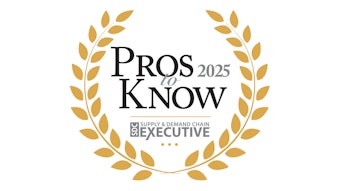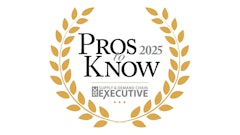
The solution to closing the widening skilled labor gap and filling the millions of jobs anticipated between now and 2031 in sectors like manufacturing, logistics, and other skilled industries can be found among the U.S.’ more than 65 million youth between the ages of 10-241. The challenge however, according to the Skilled Careers Coalition (SCC), is ensuring young adults and those who influence their career decisions understand a skilled career vs. the more traditional college or military track.
“Our study found the leading obstacle preventing more young people from pursuing a skilled career is not a lack of interest, but a lack of information,” says Mark Hedstrom, co-executive director, Skilled Careers Coalition. “Students have a clear idea of where a four-year college degree or military education can take them, however, they have little to no understanding about vocational schools and apprenticeships, and the dozens of high-paying, skills-based careers that exist across hundreds of industry sectors.”
Key takeaways:
- Financial security is the top motivator for youth when choosing a career path, with 76% agreeing that a career in the skilled trades can lead to owning a business and entrepreneurial success. Students surveyed were also drawn to other key aspects of a skilled trade career, including job stability, less debt, high quality of life, and high-income potential.
- And yet, the SCC study found that only 15% of students surveyed were considering a technical or vocational school or apprenticeship post high school. A lack of information - cited by students, parents and counselors surveyed - emerged as the barrier keeping more youth from considering a skilled career path.
- A majority of parents (80.3%), counselors (91.3%) and students (92%) agree that skilled trade workers are as important as first responders and service members. Additionally, when asked if society views those with a traditional college degree as more successful than those who pursue another option, 27% of counselors, 21.3% of parents, and 25.2% of students disagreed.
- Students: 69% said it is outdated to assume a four-year degree is the best pathway to success; while more than 43% said they need more information on technical or vocational schools as an option.
- Parents: While 80% said they have the most influence on their child’s decision-making; less than half (48.8%) admit they do not have enough information about starting the technical or vocational school process for their child. Meanwhile, 84% believe skilled trades provide a stable career path, less time in school, less debt and an overall better quality of life.
- Counselors: Despite their positive perceptions about the skilled trades, more than half (53.9%) of counselors surveyed cite a lack of resources to help guide students who are interested in pursuing skilled trades or vocational programs; while 57% cite workload challenges preventing them from being able to properly understand what future path is best for a student. The majority of counselors surveyed (90%) agree they need to share more information with students and parents about a skilled career option.
“Millions have built meaningful lives and careers in the skilled trades sector, which is experiencing the greatest demand as the skilled labor gap continues to widen. Skilled Careers Coalition is committed to working with our partners and stakeholders to address the knowledge gap that exists and advance a reimagining of skilled careers as a meaningful and fulfilling career path for younger generations,” says Hedstrom.


























